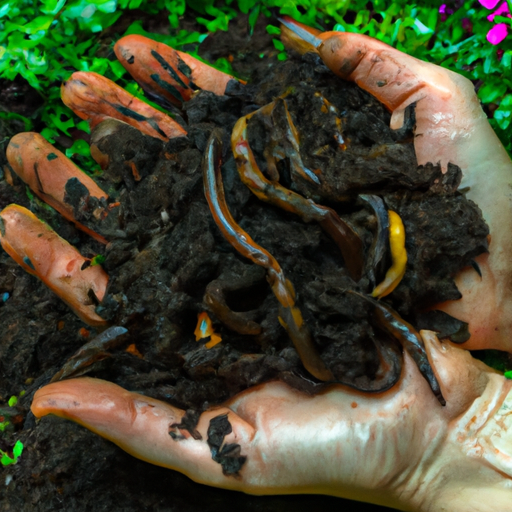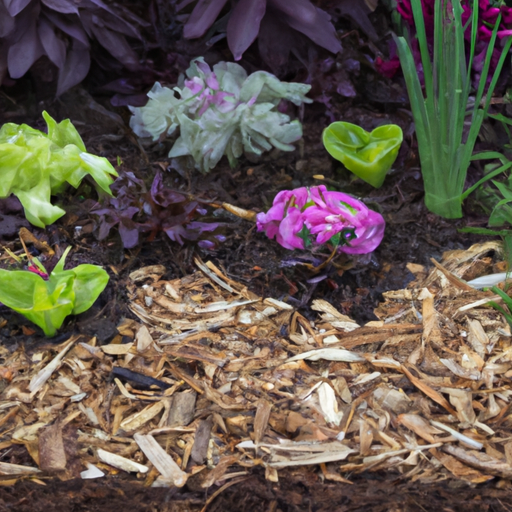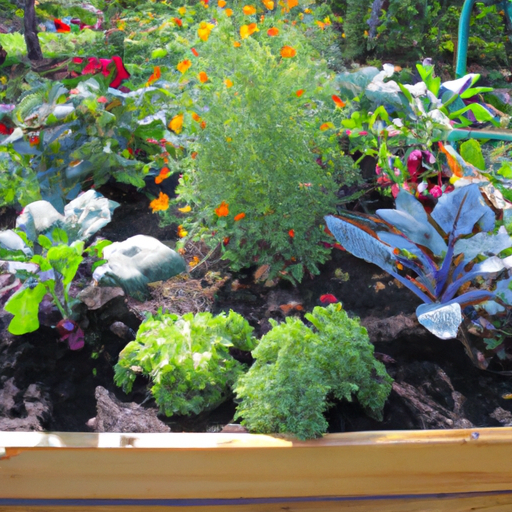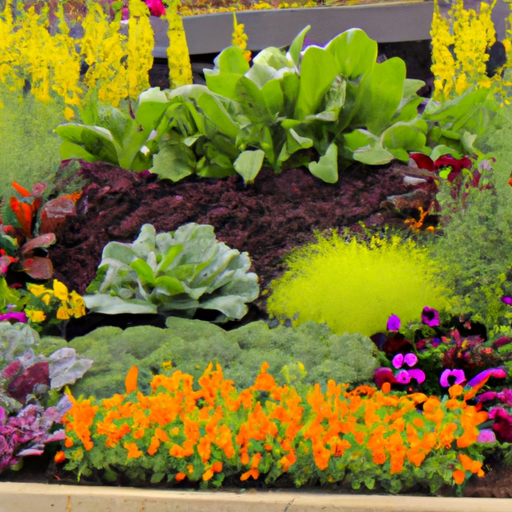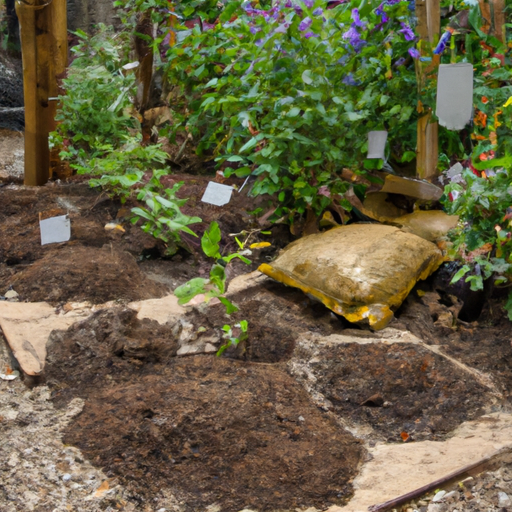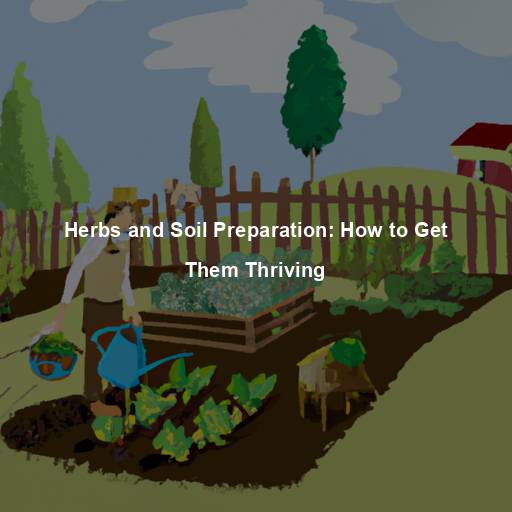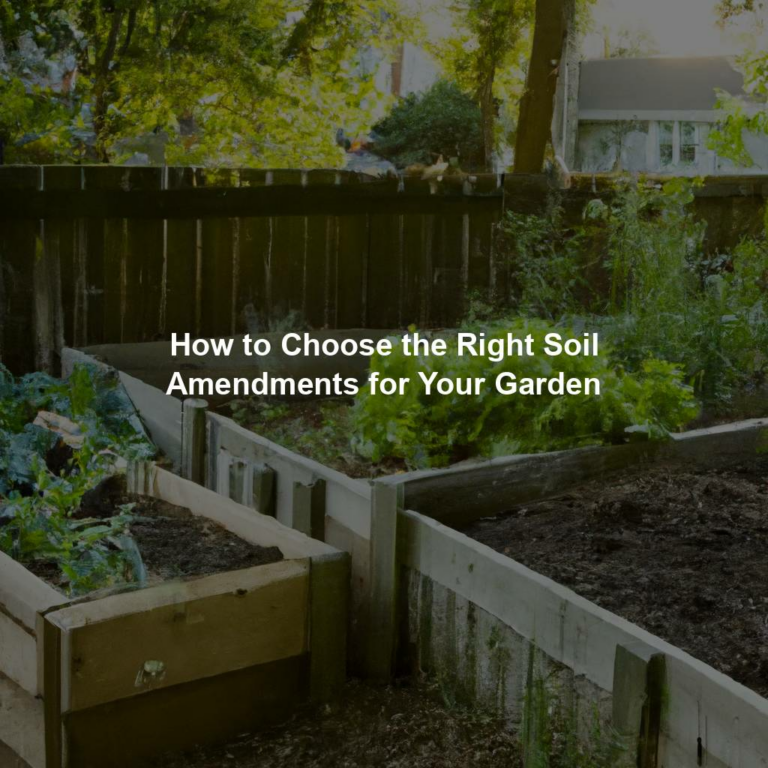As a Master Gardener, I know that healthy soil is the foundation for any thriving garden. The quality of your garden’s soil can make all the difference in the health and vitality of your plants. So, it’s essential to understand how to amend your garden soil for optimal health.
Amending your garden soil means adding nutrients and improving its structure so that it provides an ideal environment for plant growth. Whether you’re starting a new garden or reviving an existing one, amending your soil can help you achieve better yields, healthier plants, and fewer pest problems.
In this article, we’ll explore different methods of amending garden soils to provide optimal nutrition and support plant growth. So let’s get started!
Understanding Soil Composition
As a Master Gardener, understanding the composition of your garden soil is crucial for optimal plant health.
Soil texture and structure are two key factors that affect how plants grow in your garden.
Soil texture refers to the size of individual mineral particles in the soil, including sand, silt, and clay.
The ideal soil texture should have an even balance of these three components.
Meanwhile, soil structure refers to how these particles bind together to form larger aggregates or clumps.
Good soil structure provides ample space for air and water movement while also offering support for plant roots.
By knowing your soil’s texture and structure, you can determine what amendments it needs to create an environment where plants will thrive without any issues.
Testing Your Soil For Nutrient Deficiencies
To ensure optimal health for your plants, it’s important to test your soil for nutrient deficiencies. Soil pH testing is an essential part of this process as it determines the acidity or alkalinity of your soil. A pH level between 6 and 7 is ideal for most plants, but some may require a more acidic or alkaline environment.
Interpreting nutrient analysis results is also crucial in determining which nutrients are lacking in your soil. Here are five items to consider when testing your soil:
– Choose the right time to test: It’s best to test your soil before planting or after harvesting.
– Use proper equipment: Test kits can be purchased from garden centers or online stores.
– Take samples correctly: Collect multiple samples across different areas of your garden and mix them thoroughly before testing.
– Analyze the results carefully: Look at each nutrient individually and compare it against recommended levels for specific plant types.
– Adjust accordingly: If there are any deficiencies, use appropriate amendments such as compost, manure, or fertilizers.
By following these guidelines, you can accurately assess the health of your soil and provide the necessary adjustments for optimal plant growth. Remember that healthy soil equals healthy plants!
Choosing The Right Soil Amendments
Did you know that using the right soil amendments can increase plant growth by up to 50%? That’s why it’s important to choose the best options for your garden.
As a Master Gardener, I recommend two great choices: composting techniques and organic fertilizers. Composting is an excellent way to add nutrients back into the soil naturally. You can create your own compost pile with yard waste and kitchen scraps, or easily purchase pre-made bags of compost from a local store.
Organic fertilizers are also a fantastic option because they contain natural ingredients such as bone meal, fish emulsion, and blood meal. These not only provide essential nutrients but also improve soil structure which helps plants grow strong roots.
When choosing the right amendment for your soil, make sure to consider what needs your plants have and how much time you have available for upkeep. With these tips in mind, you’ll be well on your way to having healthy, thriving plants in no time!
Incorporating Amendments Into Your Garden Soil
Now that you have chosen the right soil amendments, it’s time to incorporate them into your garden soil for optimal health.
Composting techniques are a great way to add organic matter to your soil while also reducing waste in your household. Simply collect kitchen scraps and yard trimmings in a compost bin or pile, adding layers of brown (dry) and green (wet) materials until the mixture decomposes into nutrient-rich humus. This homemade compost can then be tilled into your garden beds.
When deciding between organic vs synthetic amendments, keep in mind that organic options like compost and manure provide slow-release nutrients over time as they break down naturally. Synthetic fertilizers may offer a quick boost of nutrition but can lead to excess salt buildup and harm beneficial microbes within the soil.
To ensure proper incorporation of amendments, start by loosening the top layer of soil with a fork or tiller before spreading out 2-3 inches of your chosen amendment on top. Use a rake or hoe to mix the amendment thoroughly into the top 6-8 inches of soil, breaking up any clumps as you go along.
By incorporating these strategies for choosing and incorporating amendments into your garden soil, you will promote healthy plant growth while maintaining sustainable gardening practices without compromising overall quality.
Maintaining Healthy Soil For Sustainable Gardening
Let’s take the example of a homeowner who has been struggling with unhealthy garden soil. To maintain healthy soil for sustainable gardening, it is important to understand the balance between nutrients and pH levels in your soil. Testing your soil regularly can help you determine any imbalances that need to be corrected. Soil pH levels should ideally be between 6.0-7.0 for most plants to grow optimally. Composting techniques are also essential for maintaining healthy soil as they add valuable organic matter back into the ground, improving its structure and fertility. By composting food scraps, grass clippings, leaves, and other plant material, you can create nutrient-rich compost that will not only benefit your garden but also reduce waste going to landfills. Below is a table showcasing different types of composting methods and their benefits:
| Composting Method | Benefits |
| — | — |
| Vermicomposting | Produces high-quality fertilizer while reducing landfill waste |
| Hot Composting | Rapidly breaks down organic matter into usable compost |
| Cold Composting | Easy and low maintenance method for creating rich soil amendment |
As Master Gardeners, we must strive towards ensuring our gardens thrive sustainably by utilizing practices such as testing soil pH levels and implementing effective composting techniques. With these tools at hand, we can ensure our garden soils remain healthy for years to come without compromising on quality or sustainability efforts.
Frequently Asked Questions
How Often Should I Amend My Garden Soil?
When it comes to soil amendment, the frequency of adding organic matter should be based on the needs of your garden.
Generally speaking, a yearly application is ideal for maintaining optimal health and fertility in your soil.
However, if you have heavy clay soils or sandy soils that are prone to nutrient leaching, more frequent applications may be necessary.
The benefits of regular amendments include increased water-holding capacity, improved nutrient availability for plants, enhanced microbial activity, and better overall plant growth and yield.
As a Master Gardener, I recommend performing routine soil tests to assess the current state of your soil and determine what amendments may be needed.
Additionally, incorporating cover crops into your rotation can help add natural sources of organic matter while also improving soil structure and suppressing weeds.
Can I Use Animal Manure As A Soil Amendment?
Using animal manure as a soil amendment has both benefits and risks.
On one hand, it is an excellent source of nutrients for your plants, providing essential elements like nitrogen, phosphorus, and potassium.
However, there are also potential drawbacks to consider.
Animal manure can contain harmful pathogens that may cause illness in humans or animals if not handled properly.
Additionally, improper application techniques could lead to over-fertilization or contamination of nearby water sources.
To reap the benefits while minimizing the risks, make sure to follow proper application techniques such as composting before use and avoiding direct contact with edible crops during application.
What Is The Difference Between Organic And Synthetic Soil Amendments?
Organic and synthetic soil amendments have differences in terms of their benefits and drawbacks.
Organic soil amendments come from natural sources such as compost, animal manure or bone meal while synthetic ones are artificially made with chemicals.
Organic amendments provide a slow-release of nutrients which can improve the structure and fertility of garden soil without harming its ecosystem.
On the other hand, synthetic amendments may give an instant effect but they tend to harm beneficial organisms like earthworms that help maintain soil health over time.
As a Master Gardener, it is important to consider these factors when choosing between organic and synthetic soil amendments for your garden.
Can I Amend My Soil Too Much?
Can you amend your soil too much?
Absolutely. One of the most common mistakes gardeners make is over-amending their soil, resulting in imbalanced pH levels and nutrient deficiencies that can harm plant growth.
Balancing soil pH is crucial for optimal health, but it’s important to do so in moderation. As a Master Gardener, I recommend testing your soil before adding any amendments and gradually introducing them as needed until you reach the ideal balance.
Remember, less is often more when it comes to amending your garden soil.
How Long Does It Take For Soil Amendments To Take Effect?
Wondering how long it takes for soil amendments to take effect? Well, that depends on the type of amendment you’re using.
Organic materials like compost and manure can take several months to break down and release their nutrients into the soil. However, they offer numerous benefits of composting as they improve soil structure, increase water-holding capacity, and provide essential micronutrients.
Other best soil amendments for vegetable gardens such as lime or sulfur will react more quickly with the soil but may require a longer time frame before plants can fully benefit from them.
As a Master Gardener, my advice is to be patient and monitor your garden’s growth regularly – healthy soil leads to healthy plants!
Conclusion
As a Master Gardener, I can tell you that the key to a thriving garden is healthy soil. And let me tell you, there’s no such thing as too much amending! Trust me, your plants will thank you for it.
But don’t just stick with any old amendment – choose organic options like compost or manure over synthetic ones. Your soil (and your veggies) will be happier in the long run.
And don’t worry about how long it takes for amendments to take effect – just keep adding them regularly and watch your garden flourish before your very eyes.
Happy planting!
